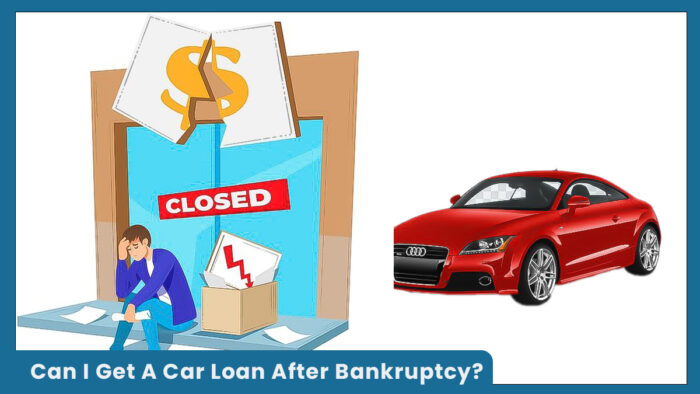Can I Get A Car Loan After Bankruptcy? Yes, you can still apply for a car loan after filing for bankruptcy. While some lenders may not consider you, others will, but the interest rates might be higher due to the impact of bankruptcy on your credit score. To increase your chances of approval, consider improving your credit score or providing a larger down payment.

Most lenders won’t approve a loan until your bankruptcy is fully discharged, which typically takes four to six months. Even after discharge, some lenders may require a waiting period of 12 to 24 months before considering you for a loan.
How Chapter 7 vs. Chapter 13 Bankruptcy Works
When considering bankruptcy, you have two main options: Chapter 7 and Chapter 13. Each option has different processes and impacts on your finances, including your ability to get a car loan.
With Chapter 7, you may not qualify for a new loan until your debts are discharged, which takes about four to six months. On the other hand, with Chapter 13, you’ll need court approval to take out any new credit during the three to five years of repayment.
After bankruptcy, you may face higher interest rates. Chapter 7 remains on your report for 10 years, while Chapter 13 stays for 7 years. The better your credit improves, the more likely you are to secure a loan at a lower rate. Consider lenders that specialize in bad credit and get pre-approved to help with your car search.
In Chapter 7, the trustee may sell nonexempt property, including your car, to pay creditors. Loan approval is unlikely until your debts are discharged (typically 4 to 6 months). It stays on your credit report for up to 10 years.
In Chapter 13, you can keep your car if you follow a court-approved repayment plan (3 to 5 years). Loan approval needs court permission. This type remains on your credit report for up to 7 years, and you’ll need to make monthly payments to the trustee.
How Can I Get The Best Auto Loan After Bankruptcy?
Save for a larger down payment to help with fees and focus on improving other factors, like job stability. Although rates may be high, refinancing in the future is possible as your financial situation improves.
After bankruptcy, some car loans may include large origination fees to offset the lender’s risk. However, these may be the best terms available, and a larger down payment can help cover these fees. Additionally, ensuring you meet the lender’s loan-to-value guidelines can improve your chances.
To improve your loan approval chances, consider factors like job stability and your length of time at your current residence. While you may face higher interest rates initially, refinancing after about a year could reduce your costs as your financial situation stabilizes.
Where to Get a Car Loan After Bankruptcy
While bankruptcy can make it harder to secure a car loan, there are still options available. Since a car loan is a secured debt, where the vehicle serves as collateral, it is easier to obtain compared to unsecured loans.
- Credit Unions: Often offer better terms, but check if you can borrow if you had debts with them.
- Specialty Lenders: Online and third-party lenders specialize in offering loans to individuals with poor credit.
- Online Car Retailers: Platforms like Carvana and CarMax offer financing options, often with damaged credit.
- Buy Here, Pay Here Financing: Dealers that offer in-house financing to people with poor or no credit history. However, their terms tend to be stricter, with higher rates and larger down payments.
How to Improve Your Approval Chances After Bankruptcy
Getting approved for a car loan after bankruptcy can be tough, but it’s not impossible. If you’ve been denied or just want to boost your chances, a few smart steps can help you move forward with confidence.
- Rebuild your credit score: Use tools like a secured credit card or credit-builder loan, and make on-time payments every month.
- Make a large down payment: Aim for at least 10%, but 15% or more shows commitment and reduces the loan amount needed.
- Choose an affordable vehicle: Apply for a smaller loan by focusing on budget-friendly used or economy models.
- Consider a cosigner: A creditworthy cosigner can increase your chances and possibly lower your interest rate.
How Long Should I Wait After Filing For Bankruptcy To Apply For A Car Loan?
Most lenders won’t approve a loan until your bankruptcy is fully discharged, which typically takes four to six months. Even after discharge, some lenders may require a waiting period of 12 to 24 months before considering you for a loan.
The Bottom Line
Financing a car after bankruptcy can help rebuild your credit when managed well. Staying on top of payments and monitoring your credit progress puts you on the path to financial recovery.



